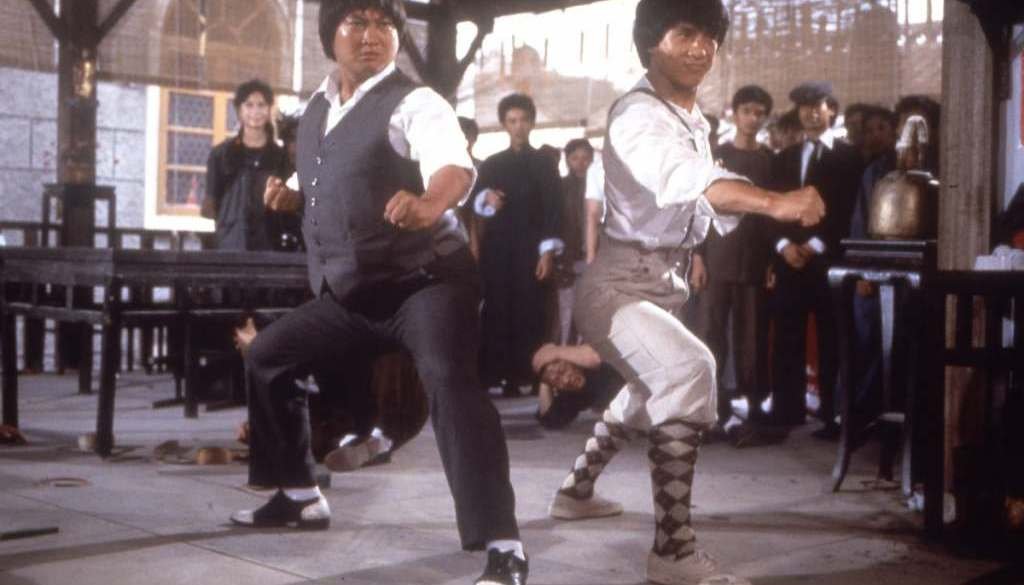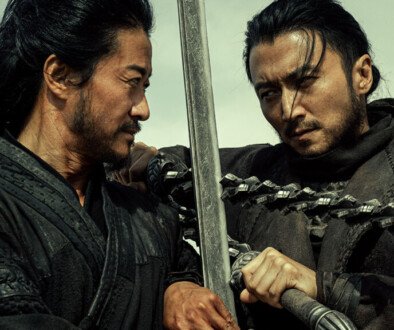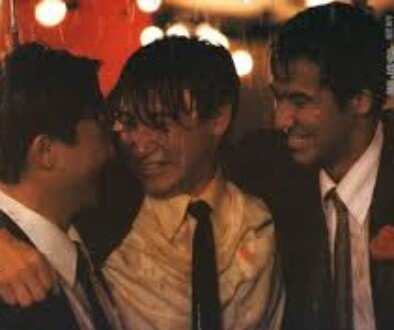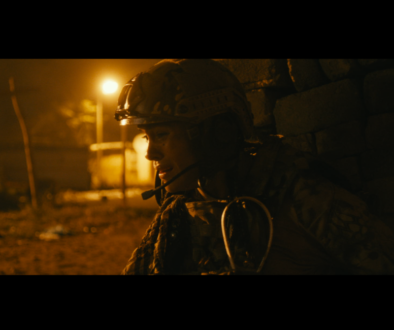THE PROJECT A COLLECTION – 88 Films Review: A Treasure Trove Of Action Comedy Delight, Memorabilia, Stories And More!
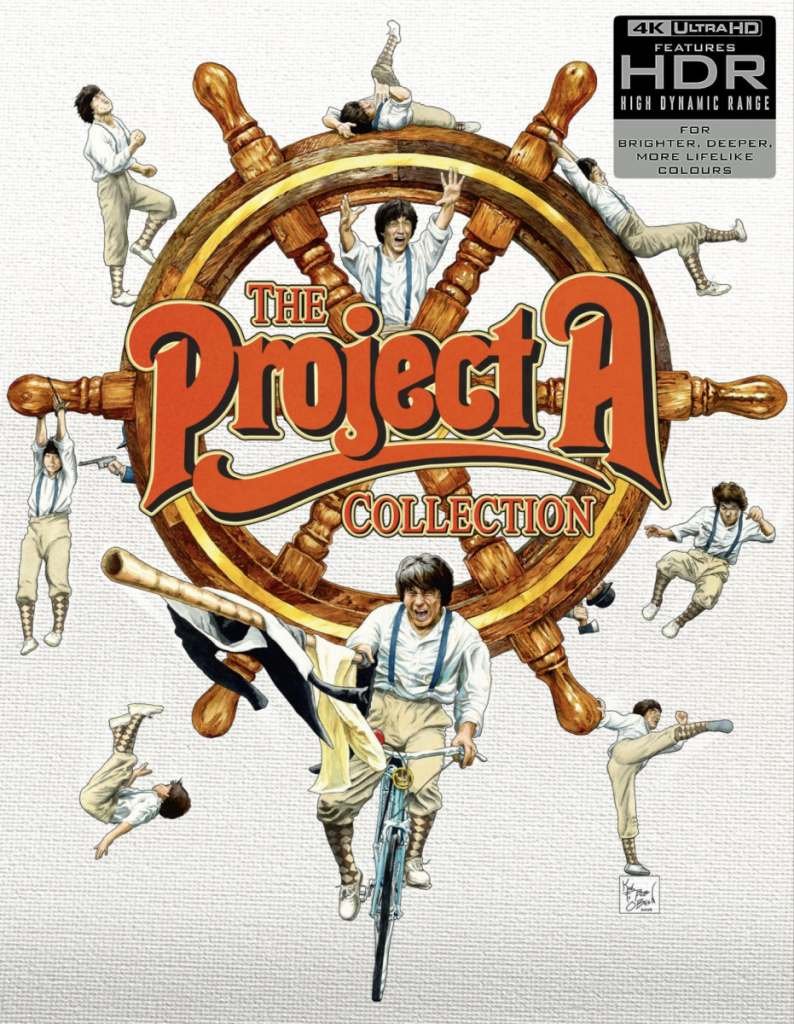
Tap the following for anchors:
• INTRODUCTION • STORY • REVIEW • PROJECT A Features (Taiwanese Cut – Extras) • PROJECT A2 Features (Extras) • Conclusion
INTRODUCTION:
I remember first setting eyes on Project A a long time ago before Blu-Rays would exist. It was on TV, it was dubbed in English, and I didn’t even know who Yuen Biao was at the time. It was post Jackie Chan 2.0 in the mid 2000s though, and I had already become enamored by Hong Kong cinema’s revival via home media, and having turned away Miramax’s dubbed version, I always hoped I would be able to see the original in its Cantonese audio. I was obsessed with seeing these titles as intended in their regional output, and lo and behold, 88 Films has packaged one hell of a gem for U.S. fans.
The bundle comes in a Blu-Ray box-set, as well as a 4-disc Blu-Ray/4K UHD combo-pack with all the trimmings and dressings you could ever want, coupling Jackie Chan’s 1984 action comedy treasure, Project A, and its 1987 sequel, Project A Part II. Chan is the credited director on both with the former hailed as the first true grouping of the Seven Little Fortunes with Chan, Biao, and action legend Sammo Hung headlining the classic flick, along with genre stalwarts like Mars, Tai Bo, Lee Hoi-Sang, John Cheung, and Wu Ma to name a few. The sequel adds to the ceremony quite a bit with Chan joined by Maggie Cheung, Bill Tung, Raymond Lui, Michael Chan Wai-Man, and Rosemund Kwan, as well as other familiar supporting faces.
STORY:
Project A centers on Dragon Ma (Chan), a naval Sergeant whose unit is faced with disbandment and reassignment to regular law enforcement after failing to deal with the escalating threat of pirates. Despite his rifts with the police captain’s unnerving bureaucracy, his newly appointed nephew, Inspector Hong (Biao), and friend/petty crook Fei (Hung), Ma is challenged with delivering justice no matter what the cost. This is especially when it comes to the looming pirate army led by the lean and mean chief, San Pao (Wei), who takes a ship of Westerners to his Island to hold hostage when an arms deal goes awry. The action heats up with Ma, Hong, and Fei joined by a handful of police officers faced with rescuing the hostages in a daring mission to infiltrate the chief’s island, ensuing an explosive free-for-all.
Project A Part II continues the saga from the events of Project A – minus a few key characters – for a story that now sees Ma reissued to the Sai Wan Police Station. Assigned with replacing its current superintendent, Chun (Lam) in order to course-correct the department’s alleged corruptive practices, Ma is tasked with staring down the town’s influential kingpin and the crooked cops he has under his thumb, all while solving a brewing conspiracy between Imperial agents, Chun, and Chinese revolutionaries for Dr. Sun Yat-Sen, as well as remnants of San Pao’s pirate army seeking vengeance against Ma for their Chief’s fall.
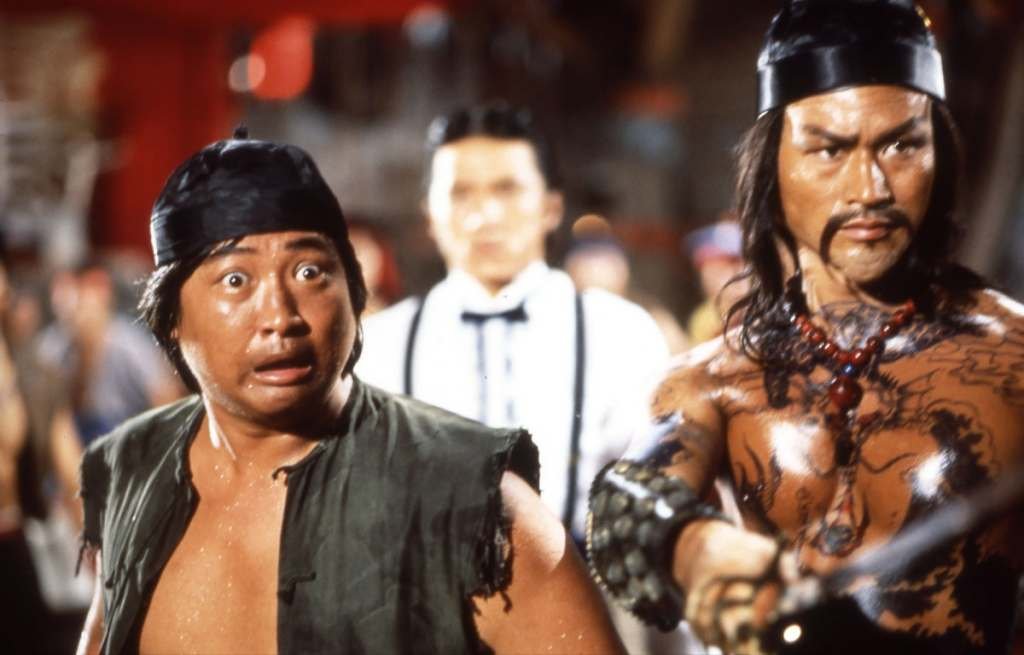
REVIEW:
Sometimes I still debate what Chan films are truly the best – a conversation to which everyone is welcome regarding their own tastes in Chan fandom. Project A wasn’t always a contender for me, and mainly due to my enjoyment for stories all culminating in the kind of R-rated fight scene-centric enjoyment I remained adherent to post-SPL. That didn’t take away from the electricity felt surrounding titles with Chan’s name on the marquee. With Rumble In The Bronx hailing the action star’s second coming, it was all downhill from there, and like anyone else, I couldn’t get enough. That’s where the Project A films finally come in, and for me, getting to see these puppies in crystal clear form apart from standard DVD presentations.
I loved the pacing of Project A, and the upbeat carriage of the first film’s energy into the sequel. Chan, Biao, and Hung are phenomenal and are a force to be reckoned in the first film, as actors approaching the top of their game, with plot points and gags that don’t imbalance the story, but provide ample momentum with each progression. It’s large in scale with major set pieces built and shot around the Golden Harvest lots with some aspects of the film comprising real streets, which really accomodates the action when required, paving the way for major and memorable stunt sequences, including the iconic clocktower fall, and the fast and furious fight finale between Wei and the main trio.
It helps that the film is slightly longer than the average ninety-minute Hong Kong action flick, with the sequel running at about the same duration for its runtime. The action is story-driven and propelled by elements of espionage and even more ebullient hijinks, including when Ma’s enemies try to frame him during a birthday party. There’s a lot more moving pieces too, so it’s a lot keep up with, and Chan makes it worth your while each step of the way, and I particularly enjoyed seeing co-star Kenny Ho stand out a little more in the sequel as the only cop under Ma’s watch who is known for not taking bribes. It’s interesting to see how our hero gets to the bottom of things, and with a story that carries much longer than its predecessor, the big finale at the end makes this film a winning bookend to what I earnestly feel should have been a three-parter.
PROJECT A – DISC FEATURES:
The commentaries for 88 Films’s Project A feel a little like overkill depending on your bandwith, but they still amount to some pretty fun intake. Anchors FJ DeSanto and Frank Djeng take the mic for the first of two tracks of commentary on the film which has some neat little nuggets to it. Some highlights are point out include the film’s era-setting with respect to China’s colonial history, and technical aspects about the film like how nearly every actor is dubbed with voice over artists – it’s something that still happens to this day on mainland releases from what I’ve noticed, and it daunts me sometimes. DeSanto muses about the film’s chemistry, sharp storytelling and characterization, and cinematography throughout the audible, and also cites at least one core member of the cast for having directed most of the film. You also get to learn what the film was originally called and why Chan and the team changed it, and more about the cast members with listicles of their achievements, including actress Isabela Wong who made her film debut in the first movie before appearing in the sequel, as well as details about the iconic clock tower stunt in the movie, among other things.
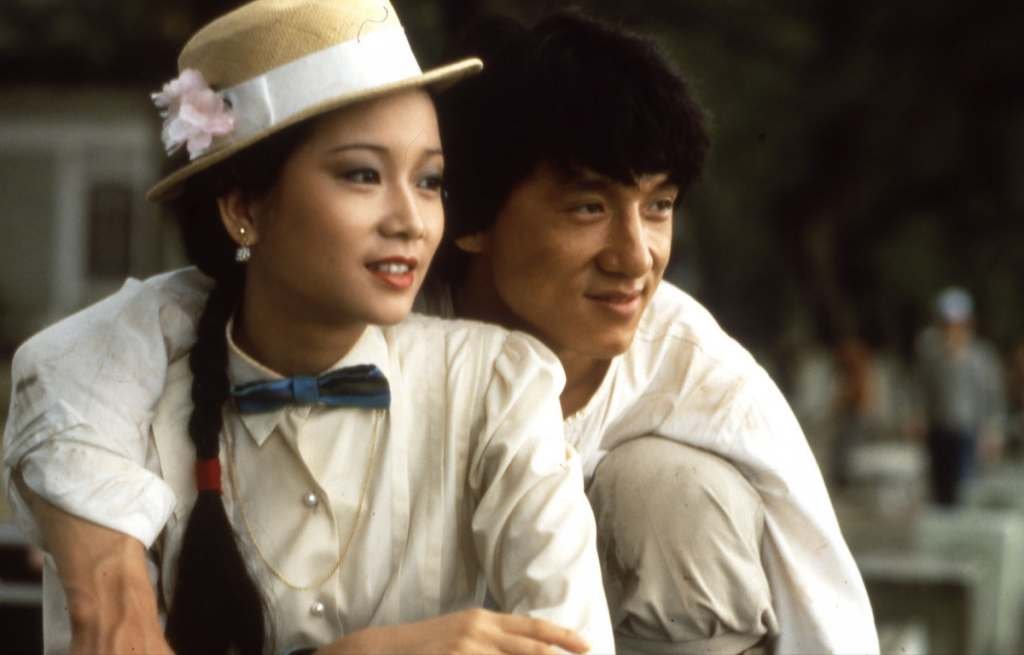
The second of two commentaries dares you to fill your movie belly even more with Djeng taking the wheel for a supplementary track, going over a lot of what was said in the first commentary but also getting into some extra tidbits, namely how and why Project A was such a pivotal career move for Chan who struggled between the failures of Dragon Lord, as well as his earlier stint in the U.S. with Battle Creek Brawl and The Protector. Djeng also goes a bit into the colloquial stuff with the kinds of swear-terms used in the first movie that didn’t exist until the 1920s, in addition to some trivia about using Panavision lenses, as well as who Frank’s mother once worked for, and details pertinent to the original Cantonese version of the movie, compared to the extended Mandarin language Taiwanese cut which is alos featured on the same disc.
THE TAIWANESE CUT:
One thing I want to point out is that both the original theatrical version and the Mandarin language Taiwanese cut all include multiple audio tracks, including English. The extra footage, of course, is presented in Mandarin language while the rest of the feature holds up. Among some of the deleted moments edited into the cut is training footage between Ma and Hong in which they egg each other on, a bath scene in which Fei steps out in the buff, more ancillary fight footage in a scene where Ma discovers a little more about Fei, and a scene where Ma is put in a room with a beautiful woman who bares a certain disability. It’s meant as a point of humor but might fall a l little flat which probably speaks to why it was removed.
EXTRAS:
Disc extras for Project A round out with a volley of interviews, the first of which comes titled as “An Interview with Jackie Chan’s Best Stunt Double: Mars Cheung”. At fourteen minutes with film highlights in between, Cheung speaks on how he got into stunts, and goes into the peculiar career pivot that almost saw Chan end his career early before making Snake In The Eagle’s Shadow. He also shares an interesting story on what it took to film the clock tower drop while contending with time and scheduling, as well as the iconic bike fight scene. He additionally goes into what led Golden Harvest to getting a sequel to Project A off the ground while Chan was filming Police Story, and the story of how Maggie Cheung got injured on the set of Police Story 2.
The interview slate thereafter runs off with a series of archival interviews beginning with “Dancing With Danger: An Interview With Stunt God Mars Cheung,” a second interview from many years earlier. Among the topics are Cheung’s Peking Opera training at age ten, as well as Bruce Lee’s lasting legacy and influence, and how Cheung got his nickname following a car accident while working in Thailand. The series continues with “Master Killer: An Interview With Wing Chun Grand Master Lee Hoi-Sang,” with the late actor telling of his experiences in the industry and the importance of listening to the directors and action directors – especially as an actor who never always got to share his own kung fu on set – and working with Chan as someone who took his work very seriously. The segment finishes things out with a gracious Wing Chun form.

At twenty two minutes, “The Elusive Dragon: An Interview With Yuen Biao” is another entry on the disc with the actor and honorary Yuen clan member starts off about his childhood and getting into Peking Opera at a young age and learning under the dogged and determined teachings of Yu Jim-Yuen. Biao also delves into how what he and his fellow classmates learned would be the formative building blocks for what they would apply as up-and-comers and film and TV, and the adroit timing of Hong Kong’s success in the action genre not just locally, but worldwide. I especially loved the point he made about how romance wasn’t as impactful as was action, because of how body movement transcends despite the language barriers of the East and West. Additionally, Yuen briefly recounts the passing of Bruce Lee and Lam Ching-Ying as he discusses working with the rest of his stunt brothers on Lee’s films, and how the connectivity changed over the years between them, with exception to himself and Hung as they worked together during their Golden Harvest tenure.
“The Pirates Den: An Interview With Dick Wei” is an interesting thirteen-minute watch. I’ve never seen Wei in his natural element outside of movies, and this was the first time I’d see him on an interview. Just as in the commentaries, Wei mentions how he got into film being discovered by Chang Cheh, the challenges he faced with acting and learning fight choreography, working under Hung and the mild dissent over methods between Hung and Chan over their fight scene execution methods. He also goes in on the challenges of filming the Eastern Condors finale, and later into what dissuaded him from taking on further roles regarding the issue of being typecast as the villain for much of his career prior to working in Taiwan. He’s also a dog lover, which is a win for me, personally, and Djeng also shares a little bit more about him in one of the aforementioned commentaries.
“Can’t Stop The Music!: An Interview With Famed Hong Kong Composer Michael Lai” lends viewers a sit-down with the composer discussing his background after learning classical piano at the age of five, as well as acting around the same age. At seventeen minutes, Lai regales over memories of working with Chan and collaborating on post production with music. He talks use full orchestration with a live band, coordinating each track for respective parts of Project A, and gets further animated in his retrospective of Chan and his work ethic, particularly with highlights pertinent to Police Story, and the energy surrounding that film’s momentum.
The next feature on the Project A disc tackles “Project Collector with Paul Dre,” a sixteen minute tour by filmmaker Matt Routledge into a Jackie Chan superfan’s collection of all things Jackie Chan from VHS tapes, DVDs and posters to picture albums, figurines, vinyl records of movie scores, video games, autographed memorabilia, actual photos from a camera Chan used on the set of Project A, and more – all assets collected from Asia and around the world. It’s the good kind of ridiculous if you’re an ardent Chan fan, and it all belongs to Paul Dre who sits down later in the featurette to talk Chan, movies, and founding the Jackie Chan Appreciation Society Facebook group; Dre also runs the supplementary Hong Kong Cinema Appreciation Society group as well.
A fifteen minute sesh proceeds with “Plan B,” with editor Edward Tang discussing working for Golden Harvest, and working on Police Story, The Protector, Armor Of God and its sequel, Operation Condor, and getting the audience to connect to the story. He also talks about varying aspects to the filmmaking process, and lets up with a little with a warning for anyone pursuant of a film career in Hong Kong. The rest of the disc is a real sweetener with a twenty four-minute outtake reel, a Japanese end credits roll, an eleven-minute behind-the-scenes reel for Project A with music from the movie, and a three-and-a-half Lunar New Year intro by Chan and his brothers citing a two year effort he and his team put into for the movie’s then-pending release. Closing things out are the film’s original theatrical trailer, an English-language trailer, and a 49-point photo gallery featuring crystal clear stills and posters for the movie.
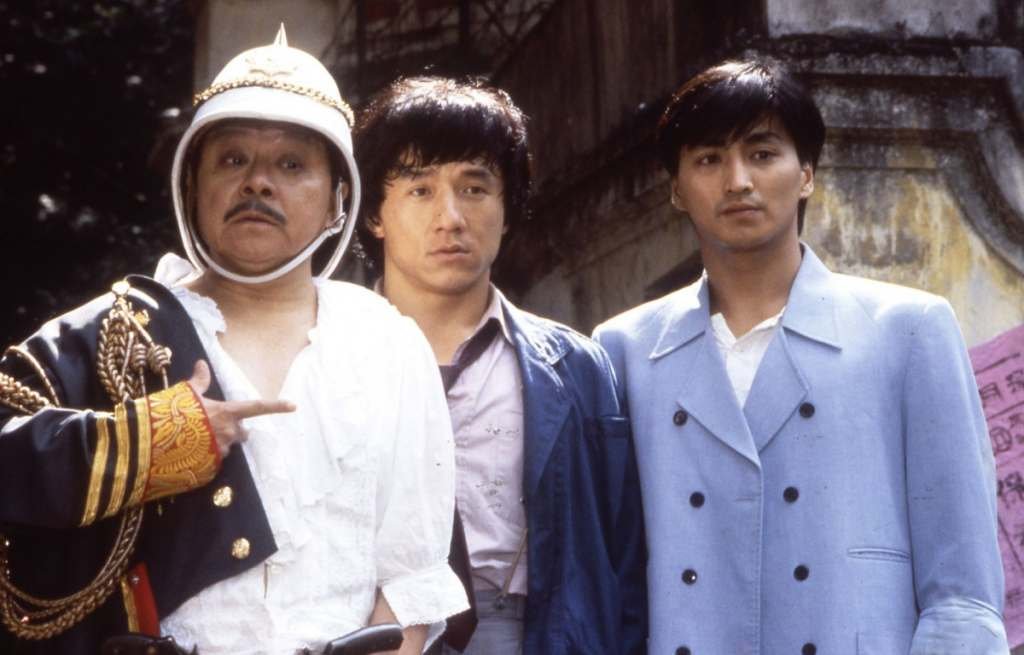
PROJECT A PART II: DISC FEATURES
There are two versions of Project A Part II featured on the disc including the export version which shaves off roughly eight minutes from the original. The latter features commentary by FJ DeSanto and Frank Djeng who go over the film’s varying details as they did for the first, calling it Chan’s “highest achievement.” It’s an enthusing track to listen to as well, particularly when DeSanto recalls watching the film with an audience at one time and the moment co-star Chan Wai-Man flips a bench at the top of a club fight scene early in the film when everyone gasps, as well as when his stunt double also tumbles off the second floor into a vase and on thinly-padded ground for the same sequence.
One core highlight that Djeng makes in the commentary is that Project A Part II is actually actor and martial artist Ken Lo’s first appearance in a Chan film, long prior to their iconic pairing opposite one another in Drunken Master 2. The actors in this film are also dubbed just like in the first, with the exception of co-star Tung. Djeng also highlights the difference in Canto dubbing between the first and second films, as well as the similarities in certain sets between this film and others. DeSanto and Djeng further talk star/director Chan’s evolution as a filmmaker through the inclusion of political undertones, and also doles out a bit of trivia regarding co-star Kenny Ho, which reminds me I should probably still check out Ekin Cheng fantasy flick, A Man Called Hero, at some point. Additionally, in talking about his own Project A Part II experience, Djeng talks 1997 during his Tai Seng days showing up at Comic Con, which is how he and DeSanto first met.
EXTRAS:
The commentary track is a fun listen, but the contents are far from over with the Project A Part II disc as it continues with an extensive interview with Anthony Carpio. Conducted by William Yuen, Carpio details his life thirty-six years up to then since meeting Jackie Chan, and what life was like being a leather jacket-wearing member of the JC Stunt Team, working with the team and the grueling, demanding hours they all shared during productions. He talks meeting Willie Chan and action choreographer Wan Fat, working on Wellson Chin’s Naughty Boys to gain experience, working with cinematographer Cheung Yiu-Cho, conditioning stunts with and without wires, working as a team on action design, and the amount of takes for a single shot. He also expands on the pressure of making the sequel, the rates at which sets were built and demolished, and even recounts the key sequence in the second half of the film involving Chan’s character being trapped in a mortar and pestle. Another interesting tidbit he shares is how long it took to make the movie compared to Chan’s 1989 action comedy gangster classic, Mr. Canton & Lady Rose, a.k.a. Miracles.
Up next is an interview with Michael Chan Wai-Man titled “The Big Boss: An Interview With Chan Wai-Man,” where he delves into his martial arts upbringing from the age of twelve, learning the Tam family style of Saam Chin, as well boxing and kickboxing. He’s speaks at length and with lots of vigor in talking martial arts and his caveats for training, like prioritizing speed over size for longevity, as well as his fighting career both in the professional and illegal arenas. He talks meeting producer Victor Lam prior to starring in 1973’s Adventure In Denmark, and also expresses his admiration with Bruce Lee who he dubs “the king of kung fu,” as well as how Lee backed actor Little Unicorn’s career, talks the impact Lee’s death had on the industry prior to the Bruceploitation era.
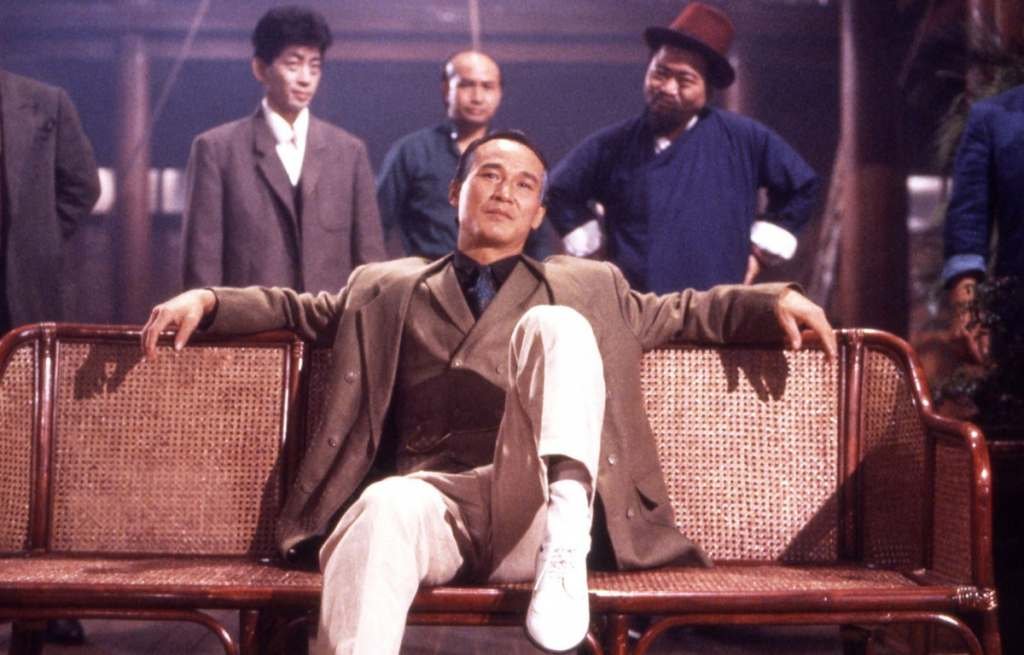
The interviews remain but in archival form, this time with Roberta Chow’s thirteen minute documentary, “Someone Will Know Me”. It’s a thirteen-minute affair narrated by May Wong and dubbed in English over fans of the Jackie Chan team, and three of its members, Mars Cheung, Chris Li, and Rocky Lai. Following that is a full-screen presentation of Jackie Chan’s Project A Part II theme song, “I Stand Up High” which also appears as an insert to the end credits of the movie, including its Japanese ending which is also featured on the disc. Bookending the contents of the Project A Part II disc are the Hong Kong, Export, and Tai Seng trailers, and 37-point stills gallery, while The Project A Collection caps off its generous packagaing with the inclusion of two large doubled sided posters presenting the authentic marketing ink for the movie, as well as a small bundle of lettercards promoting Project A, including one that inks in the film’s original “Pirate Patrol” titling, and a ninety-nine page pamphlet featuring exclusive stills from both sides of the lens, with insightful written inserts by author Thorsten Boose, including an interview with the aforementioned Roberta Chow.
CONCLUSION:
Invariably, there is also the 4K delivery of both films incumbent with The Project A Collection which, conclusively, is one of the most fervent gatherings of Jackie Chan’s cinematic travails of the 1980s. 88 Films sent this to me a while back and because it was such a large and loaded offering, I’ve only able to complete writing it up over the weekend. This boxset is lush, and one of the best bundles to own if you’re a Hong Kong film fan or a Jackie Chan collectivist. It’s an overstock of anything and everything you would want to know about the Project A movies, their extravangance and contribution to Jackie Chan’s industry-defining career at a time when Hong Kong needed a way into fruition post-Bruce Lee. You can currently find it at the MVDshop if you live in North America.
The image of the boxset come by way of 88 Films. The stills featured throughout this article are scans from the film’s seperate release to the UK from Eureka Entertainment.
Native New Yorker. Been writing for a long time now, and I enjoy what I do. Be nice to me!

